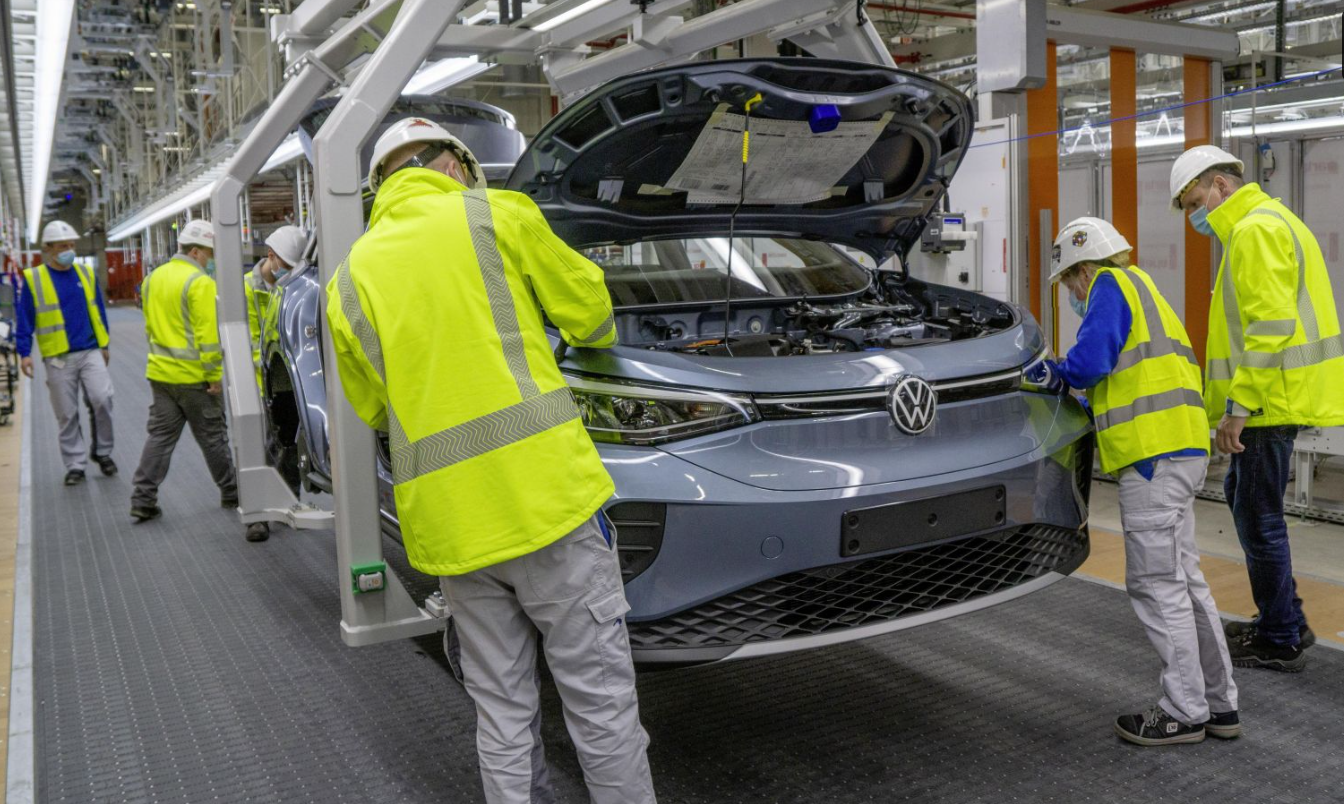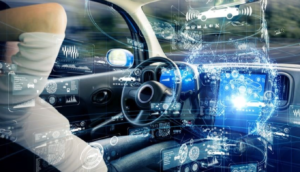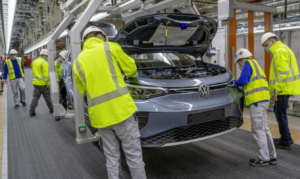
Introduction
Brief overview of the shift towards electric vehicles (EVs)
In recent years, the automotive industry has experienced a seismic shift towards electric vehicles (EVs), marking a significant departure from traditional combustion engine cars. This transition, fueled by mounting concerns over environmental sustainability and technological advancements, has propelled the world towards a future powered by clean, efficient, and innovative transportation solutions.
The Rise of Electric Vehicles
– Electric vehicles, once considered a niche market, have rapidly gained traction as viable alternatives to conventional gasoline-powered cars.
– The global push towards sustainability and reducing carbon emissions has accelerated the adoption of EVs, positioning them as key players in combating climate change.
– Major automotive manufacturers, including German Car Factory giants like Volkswagen, have committed substantial resources to develop and produce electric vehicles, signaling a fundamental shift in the industry’s trajectory.
German Car Factory Goes Electric
– Amidst this transformative landscape, the decision by a prominent German Car Factory to go all-electric represents a bold and forward-thinking move.
– By embracing electric vehicle production, the factory aims to align itself with environmental mandates while staying at the forefront of automotive innovation.
– This strategic pivot underscores the growing importance of sustainability in manufacturing processes and product offerings.
Implications for the Automotive Industry
– The transition towards electric vehicles by the German Car Factory sends ripples throughout the automotive sector, prompting competitors to reassess their own strategies.
– As consumer preferences continue to shift towards electric cars, automakers must adapt to remain relevant and competitive in the evolving marketplace.
– The move towards electric vehicle production also presents opportunities for collaboration and partnerships within the industry, driving further innovation and market expansion.

Introduction of the German car factory going all-electric
In a groundbreaking move towards sustainable mobility, the German Car Factory has announced its ambitious plan to transition to electric vehicle (EV) production exclusively. This bold decision marks a significant milestone in the automotive industry’s journey towards a greener and more eco-conscious future.
Embracing Electric Innovation
– The German Car Factory has long been synonymous with precision engineering and automotive excellence. Now, it sets its sights on pioneering the next generation of vehicles powered by electric technology.
– By going all-electric, the factory aims to reduce its carbon footprint and embrace environmentally friendly manufacturing practices. This commitment underscores its dedication to sustainability and responsible corporate citizenship.
Setting the Standard for the Industry
– As a leader in automotive manufacturing, the German Car Factory’s transition to electric represents a paradigm shift for the entire industry.
– By embracing electric vehicle production, the factory not only sets a new standard for sustainability but also establishes itself as a trailblazer in innovation and forward-thinking business practices.
Implications for the Future
– The decision to go all-electric has far-reaching implications for the future of transportation. It signals a departure from traditional combustion engine vehicles and paves the way for a cleaner, more efficient automotive landscape.
– As the German Car Factory leads the charge towards electrification, it challenges other automakers to follow suit and prioritize environmental sustainability in their manufacturing processes.
Importance and implications of this transition
The decision of the German Car Factory to go all-electric represents a pivotal moment in the automotive industry, carrying significant implications for the environment, economy, and society at large.
Environmental Impact
– Transitioning to electric vehicles is crucial for mitigating climate change and reducing greenhouse gas emissions.
– By phasing out traditional combustion engine cars, the German Car Factory contributes to cleaner air and a healthier environment for future generations.
– Electric vehicles offer a sustainable alternative to fossil fuel-powered vehicles, helping to combat pollution and preserve natural resources.
Economic Implications
– Embracing electric vehicle production presents new opportunities for innovation, job creation, and economic growth.
– The German Car Factory’s shift towards electric vehicles positions it as a leader in the burgeoning EV market, potentially increasing market share and profitability.
– Investing in electric vehicle technology fosters a competitive advantage, as consumers increasingly prioritize sustainability and eco-friendly products.
Societal Benefits
– Transitioning to electric vehicles promotes social equity by reducing dependence on fossil fuels and lowering transportation costs for consumers.
– Electric vehicles offer quieter and smoother rides, enhancing the overall driving experience and improving quality of life in urban areas.
– The German Car Factory’s commitment to sustainability sets a positive example for other industries, inspiring collective action towards a greener, more sustainable future.
Background of the German Car Factory
Overview of the factory’s history and significance
The German Car Factory stands as a beacon of automotive innovation and excellence, with a rich history dating back decades. Established with a vision to redefine the automotive industry, the factory has continually pushed the boundaries of engineering and manufacturing, earning its place as a global leader in car production.
Historical Roots
– The German Car Factory quickly gained renown for its commitment to quality, precision, and craftsmanship.
– Throughout its history, the factory has produced iconic vehicles that have left an indelible mark on the automotive landscape, garnering accolades and admiration from enthusiasts worldwide.
Engineering Legacy
– Renowned for its cutting-edge technology and state-of-the-art facilities, the German Car Factory has consistently set industry standards for innovation and performance.
– From pioneering safety features to groundbreaking design concepts, the factory’s engineering prowess has earned it a reputation as a trailblazer in automotive excellence.
Global Impact
– With a global presence spanning continents, the German Car Factory has played a pivotal role in shaping the automotive industry on a global scale.
– Its vehicles have become synonymous with quality, reliability, and prestige, earning the trust and loyalty of customers around the world.
Embracing the Future
– The German Car Factory’s decision to transition to electric vehicles (EVs) represents a bold step towards a more sustainable and environmentally conscious future.
– By embracing electric vehicle production, the factory reaffirms its commitment to innovation, sustainability, and responsible corporate citizenship, setting a new standard for the automotive industry.
Previous production methods and environmental impact
The German Car Factory has a storied history of automotive production, characterized by traditional manufacturing methods that have shaped its legacy. However, alongside its successes, these methods have also left an environmental footprint that the factory now seeks to mitigate through its transition to electric vehicle production.
Traditional Manufacturing Methods
– Historically, the German Car Factory relied on conventional production methods, including combustion engine assembly lines and fossil fuel-powered machinery.
– While effective in producing high-quality vehicles, these methods were associated with significant carbon emissions and environmental degradation.
Environmental Impact
– The reliance on fossil fuels for energy and transportation contributed to the factory’s carbon footprint, exacerbating climate change and air pollution.
– Waste generated during manufacturing processes, such as metal scraps and chemical byproducts, posed environmental challenges and required extensive disposal measures.
Transitioning Towards Sustainability
– Recognizing the need for change, the German Car Factory has embarked on a journey towards sustainability by transitioning to electric vehicle production.
– By embracing electric technology, the factory aims to reduce its reliance on fossil fuels, minimize carbon emissions, and adopt more eco-friendly manufacturing practices.
Future Outlook
– The shift towards electric vehicle production marks a transformative moment for the German Car Factory and the automotive industry as a whole.
– As the factory continues to innovate and adapt, its commitment to sustainability will not only reduce its environmental impact but also set new standards for responsible manufacturing practices.
Introduction of the decision to go all-electric
The German Car Factory has embarked on a bold and forward-thinking journey towards sustainability by making the decision to transition its production exclusively to electric vehicles (EVs). This landmark decision represents a significant shift in the factory’s approach to manufacturing and underscores its commitment to environmental stewardship and innovation.
Recognizing the Need for Change
– With mounting concerns over climate change and air pollution, the German Car Factory recognized the urgent need to reduce its carbon footprint and embrace cleaner, more sustainable manufacturing practices.
– The decision to go all-electric reflects the factory’s dedication to leading by example and spearheading the transition towards a greener automotive industry.
Embracing Electric Vehicle Technology
– By embracing electric vehicle technology, the German Car Factory aims to revolutionize the way cars are produced and drive towards a more sustainable future.
– Electric vehicles offer numerous benefits, including lower carbon emissions, reduced reliance on fossil fuels, and enhanced energy efficiency, making them a natural choice for the factory’s transition.
Setting a New Standard
– The German Car Factory’s decision to go all-electric sets a new standard for the automotive industry, challenging other manufacturers to follow suit and prioritize sustainability in their operations.
– By leading the charge towards electric vehicle production, the factory positions itself as an industry leader and paves the way for a cleaner, more sustainable future.
Commitment to Innovation
– The transition to electric vehicle production represents a commitment to innovation and forward-thinking at the German Car Factory.
– By investing in electric vehicle technology, the factory demonstrates its willingness to adapt to changing market trends and embrace new opportunities for growth and success.
Transition to Electric Vehicles
Factors driving the transition
The transition to electric vehicles (EVs) by the German Car Factory is propelled by a combination of key factors, reflecting the growing momentum towards sustainability and innovation in the automotive industry.
Environmental Concerns
- Environmental Sustainability: Increasing awareness of climate change and its impact on the planet has spurred a global shift towards cleaner transportation alternatives.
- Reducing Carbon Footprint: Electric vehicles produce zero tailpipe emissions, making them an attractive option for eco-conscious consumers and policymakers alike.
- Preserving Natural Resources: By reducing reliance on fossil fuels, electric vehicles help conserve finite resources and minimize environmental degradation.
Regulatory Pressures
- Government Mandates: Stringent regulations aimed at reducing greenhouse gas emissions and improving air quality have incentivized automakers to invest in electric vehicle technology.
- Emission Standards: Stricter emission standards and carbon pricing mechanisms have pushed automotive manufacturers to explore cleaner, more sustainable production methods.
- Policy Support: Government subsidies and incentives for electric vehicle adoption have encouraged both consumers and businesses to embrace electric transportation solutions.
Consumer Demand for Sustainable Options
- Changing Preferences: Consumer preferences are shifting towards sustainable products and services, including transportation options that align with environmental values.
- Fuel Cost Savings: Electric vehicles offer long-term cost savings compared to traditional combustion engine cars, driving consumer interest and adoption.
- Technological Advancements: Advances in battery technology and charging infrastructure have made electric vehicles more practical and convenient for everyday use, further fueling consumer demand.
Challenges faced during the transition
While the transition to electric vehicles (EVs) holds promise for a sustainable future, it also presents a set of challenges that must be addressed to ensure a smooth and successful transition for the German Car Factory and the automotive industry as a whole.
Technological Limitations
- Battery Technology: Despite significant advancements, battery technology still faces challenges related to cost, energy density, and charging times.
- Range Anxiety: Limited driving range and the need for frequent charging remain concerns for consumers, particularly for long-distance travel.
- Vehicle Performance: Achieving performance parity with traditional combustion engine vehicles, especially in terms of acceleration and towing capacity, is a ongoing technological challenge.
Infrastructure Requirements
- Charging Infrastructure: The widespread availability of charging stations is crucial for supporting the adoption of electric vehicles, requiring significant investment and coordination between public and private stakeholders.
- Grid Capacity: Increased demand for electricity from electric vehicles may strain existing power grids, necessitating upgrades and investments in grid infrastructure to support charging needs.
- Urban Planning: Urban areas may require infrastructure upgrades to accommodate the charging needs of a growing fleet of electric vehicles, including parking facilities and curbside charging stations.
Workforce Training and Adaptation
- Skills Gap: Transitioning to electric vehicle production requires specialized knowledge and skills, including expertise in battery technology, electric drivetrains, and software integration.
- Training Programs: Investing in workforce training and development programs is essential to ensure that employees are equipped with the necessary skills and knowledge to support electric vehicle production.
- Cultural Shift: Embracing electric vehicle technology may require a cultural shift within the workforce, including changes in mindset, work processes, and organizational structures to adapt to new technologies and practices.
Impact on Volkswagen and the Automotive Industry
The decision of the German Car Factory, a subsidiary of Volkswagen, to transition to all-electric production marks a significant turning point for both the company and the automotive industry as a whole. Let’s delve into Volkswagen’s strategy and goals, the implications for other automakers, and the market response to this transformative shift.
Volkswagen’s Strategy and Goals in Going All-Electric
Volkswagen has articulated a clear strategy and set ambitious goals in its transition to all-electric production:
– Commitment to Sustainability: Volkswagen aims to become a leader in sustainable mobility by prioritizing electric vehicle production and reducing its carbon footprint.
– Expanding Electric Vehicle Portfolio: The company plans to launch an array of electric vehicles across various segments, catering to diverse consumer needs and preferences.
– Investment in Infrastructure: Volkswagen is investing in charging infrastructure and battery technology to support the widespread adoption of electric vehicles and enhance the ownership experience for customers.
Implications for Other Automakers
The shift towards all-electric production at the German Car Factory has far-reaching implications for other automakers:
– Competitive Pressure: Volkswagen’s bold move puts pressure on other automakers to accelerate their own electric vehicle initiatives and remain competitive in the evolving market.
– Innovation and Collaboration: The transition to electric vehicles fosters collaboration and innovation within the industry as automakers seek to develop new technologies and solutions to meet growing consumer demand.
– Regulatory Compliance: Increasing regulatory pressure and emission standards may compel other automakers to follow Volkswagen’s lead and prioritize electric vehicle production to comply with environmental regulations.
Market Response and Potential Competitive Advantages
The market response to Volkswagen’s shift towards all-electric production has been largely positive, with several potential competitive advantages:
– Brand Differentiation: Volkswagen’s commitment to electric vehicles enhances its brand image and distinguishes it from competitors, appealing to environmentally conscious consumers.
– Market Leadership: By embracing electric vehicle technology early on, Volkswagen positions itself as a market leader in the rapidly growing electric vehicle segment, potentially gaining first-mover advantages.
– Long-Term Sustainability: Investing in electric vehicle production aligns with long-term trends towards sustainability, positioning Volkswagen for sustained success and growth in the future automotive landscape.
Environmental and Economic Benefits
Environmental and Economic Benefits of Transitioning to Electric Vehicles
The transition to electric vehicles (EVs) at the German Car Factory brings about a host of environmental and economic benefits, contributing to a cleaner, more sustainable future while also unlocking potential cost savings and economic opportunities.
Reduction in Carbon Emissions
The adoption of electric vehicles leads to a significant reduction in carbon emissions:
– Zero Tailpipe Emissions: Electric vehicles produce no tailpipe emissions, helping to improve air quality and mitigate the impacts of climate change.
– Lower Carbon Footprint: By shifting away from fossil fuel-powered vehicles, the German Car Factory reduces its overall carbon footprint, contributing to global efforts to combat greenhouse gas emissions.
– Environmental Preservation: Electric vehicles play a crucial role in preserving natural ecosystems and mitigating the adverse effects of pollution on human health and the environment.
Energy Efficiency Improvements
Electric vehicles offer improvements in energy efficiency compared to traditional combustion engine cars:
– Higher Energy Conversion: Electric drivetrains are more efficient in converting energy from batteries to propulsion, resulting in lower energy losses during operation.
– Regenerative Braking: Regenerative braking systems capture and store energy during deceleration, further enhancing the energy efficiency of electric vehicles and extending their range.
– Reduced Energy Waste: Electric vehicles eliminate the need for idling and reduce energy waste associated with traditional internal combustion engines, resulting in overall energy savings.
Cost Savings and Potential Economic Benefits
Transitioning to electric vehicles presents numerous cost-saving opportunities and economic benefits:
– Lower Operating Costs: Electric vehicles have lower fuel and maintenance costs compared to traditional combustion engine cars, resulting in long-term savings for consumers and businesses.
– Job Creation: The growing electric vehicle industry creates new job opportunities in manufacturing, research and development, and related sectors, driving economic growth and employment.
– Market Expansion: The transition to electric vehicles opens up new markets and revenue streams for the automotive industry, stimulating innovation and investment in sustainable transportation solutions.
Community and Societal Impact
The transition to electric vehicles (EVs) at the German Car Factory extends beyond environmental and economic benefits, making a positive impact on the community and society at large. Let’s explore the job creation, local community response, and social implications of sustainable manufacturing practices associated with this transformative shift.
Job Creation and Economic Development
The transition to electric vehicles spurs job creation and economic development:
– New Employment Opportunities: Electric vehicle production creates jobs in manufacturing, engineering, research, and development, providing employment opportunities for local communities and stimulating economic growth.
– Supply Chain Expansion: The electric vehicle supply chain extends beyond manufacturing, supporting additional jobs in battery production, charging infrastructure development, and related industries.
– Economic Stimulus: The growth of the electric vehicle industry contributes to economic stimulus through increased consumer spending, investment, and tax revenue generation, benefiting communities and regions where electric vehicle production occurs.
Local Community Response and Support
The local community’s response to the transition to electric vehicles is overwhelmingly positive:
– Community Engagement: The German Car Factory actively engages with local communities to garner support and address any concerns related to the transition to electric vehicle production.
– Environmental Benefits: Residents recognize the environmental benefits of electric vehicles, including improved air quality and reduced noise pollution, enhancing quality of life in the surrounding area.
– Pride and Identity: Electric vehicle production at the German Car Factory fosters a sense of pride and identity within the local community, positioning it as a leader in sustainable manufacturing practices and innovation.
Social Implications of Sustainable Manufacturing Practices
Transitioning to electric vehicles has social implications that extend beyond environmental and economic considerations:
– Health and Well-being: Sustainable manufacturing practices associated with electric vehicle production promote public health and well-being by reducing exposure to harmful emissions and pollutants.
– Equity and Accessibility: Electric vehicles offer transportation solutions that are more equitable and accessible, providing opportunities for underserved communities to access clean, affordable mobility options.
– Cultural Shift: The transition to electric vehicles reflects a broader cultural shift towards sustainability and environmental consciousness, inspiring individuals and communities to adopt more sustainable lifestyles and practices.
Future Outlook and Potential Challenges
As the German Car Factory and the automotive industry continue to embrace electric vehicle (EV) production, several key factors will shape the future outlook and present potential challenges that must be addressed to ensure long-term success and sustainability.
Long-term Sustainability of Electric Vehicle Production
Ensuring the long-term sustainability of electric vehicle production is crucial for mitigating environmental impact and fostering industry growth:
– Battery Recycling: Developing robust battery recycling infrastructure is essential to minimize waste and maximize resource efficiency in electric vehicle manufacturing.
– Materials Sourcing: Securing a sustainable and ethically sourced supply chain for critical materials such as lithium, cobalt, and rare earth metals is vital to avoid environmental degradation and social exploitation.
– Lifecycle Assessment: Conducting comprehensive lifecycle assessments of electric vehicles, from production to end-of-life disposal, is necessary to identify and mitigate environmental hotspots and optimize sustainability performance.
Technological Advancements and Innovation in the EV Sector
Continued technological advancements and innovation are key to driving progress and maintaining competitiveness in the electric vehicle sector:
– Battery Technology: Advancements in battery technology, including improvements in energy density, charging speed, and longevity, will enhance the performance and affordability of electric vehicles.
– Vehicle-to-Grid Integration: Innovations in vehicle-to-grid (V2G) technology enable electric vehicles to serve as mobile energy storage units, contributing to grid stability and renewable energy integration.
– Autonomous Driving: Integration of autonomous driving features in electric vehicles promises to revolutionize mobility, improve safety, and optimize energy efficiency, shaping the future of transportation.
Regulatory and Policy Considerations
Regulatory and policy frameworks play a crucial role in shaping the trajectory of electric vehicle adoption and market development:
– Emission Standards: Stringent emission standards and regulatory mandates incentivize automakers to invest in electric vehicle technology and accelerate the transition away from fossil fuels.
– Incentives and Subsidies: Government incentives and subsidies for electric vehicle purchase, infrastructure development, and research and development stimulate market demand and investment in electric mobility solutions.
– Charging Infrastructure: Regulatory support for the deployment of charging infrastructure, including standardized charging protocols and permitting processes, is essential to address range anxiety and facilitate widespread electric vehicle adoption.
Conclusion
As we conclude our exploration of the **German Car Factory**’s transition to electric vehicle production, let’s recap the key points discussed, reflect on the significance of this transformative shift, and consider the future implications for the automotive industry.
Recap of the Key Points Discussed
Throughout this article, we’ve delved into the multifaceted impact of the German Car Factory’s transition to electric vehicles:
– We examined the driving forces behind the transition, including environmental concerns, regulatory pressures, and consumer demand for sustainable options.
– We explored the environmental and economic benefits of electric vehicle production, such as the reduction in carbon emissions, energy efficiency improvements, and potential cost savings.
– We discussed the community and societal impact of electric vehicle production, including job creation, local community response, and social implications of sustainable manufacturing practices.
– We analyzed the future outlook and potential challenges of electric vehicle production, focusing on long-term sustainability, technological advancements, and regulatory considerations.
Reflection on the Significance of the German Car Factory’s Transition to Electric
The German Car Factory’s transition to electric vehicle production marks a pivotal moment in the automotive industry’s evolution:
– It represents a bold commitment to sustainability, innovation, and responsible corporate citizenship, setting a new standard for the automotive industry.
– It underscores the transformative power of electric vehicle technology in shaping a cleaner, greener, and more sustainable future for transportation.
– It positions the German Car Factory as a leader in electric mobility, driving progress towards a carbon-neutral automotive industry and inspiring other automakers to follow suit.
Call to Action or Discussion of Future Implications for the Automotive Industry
As we look ahead, the transition to electric vehicles presents both challenges and opportunities for the automotive industry:
– We must continue to invest in research, innovation, and infrastructure to overcome technological hurdles and ensure the long-term sustainability of electric vehicle production.
– Policymakers, industry stakeholders, and consumers alike play a crucial role in supporting the growth of electric mobility through regulatory support, market incentives, and informed purchasing decisions.
– By embracing electric vehicle technology and sustainable manufacturing practices, we can pave the way for a brighter, cleaner, and more sustainable future for the automotive industry and the planet as a whole.





